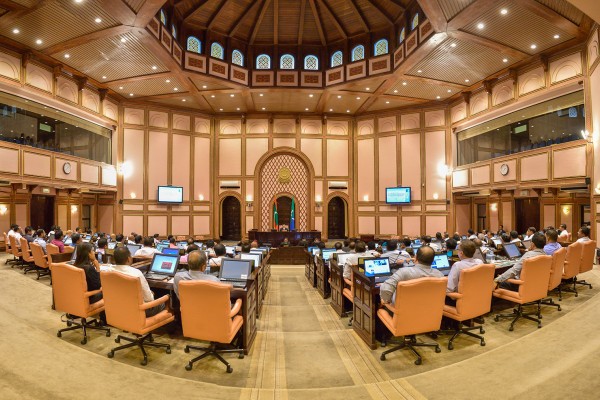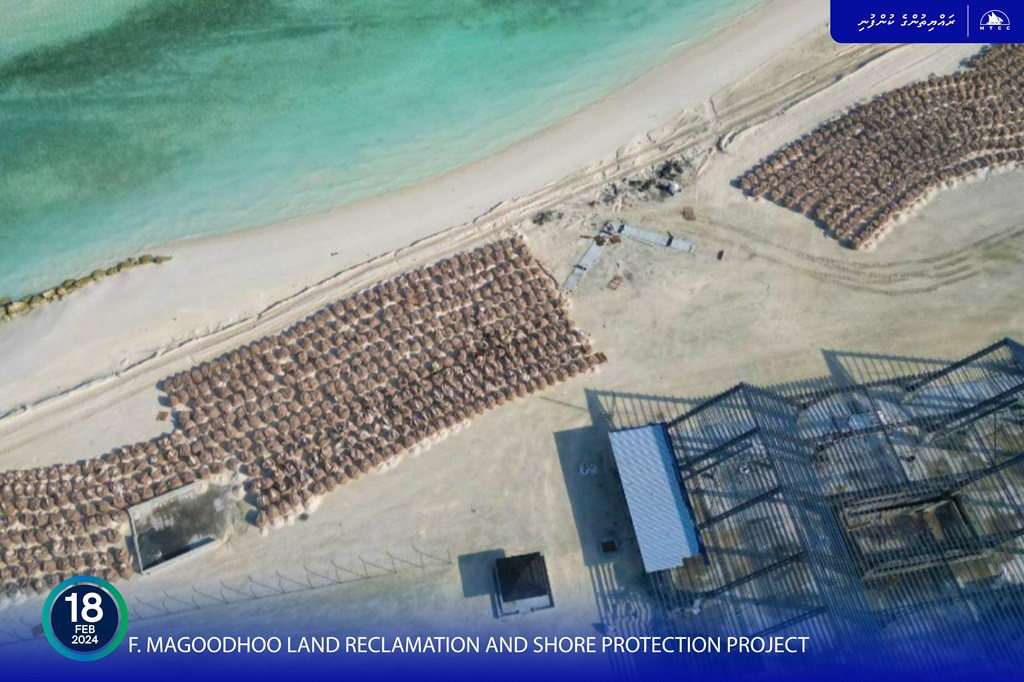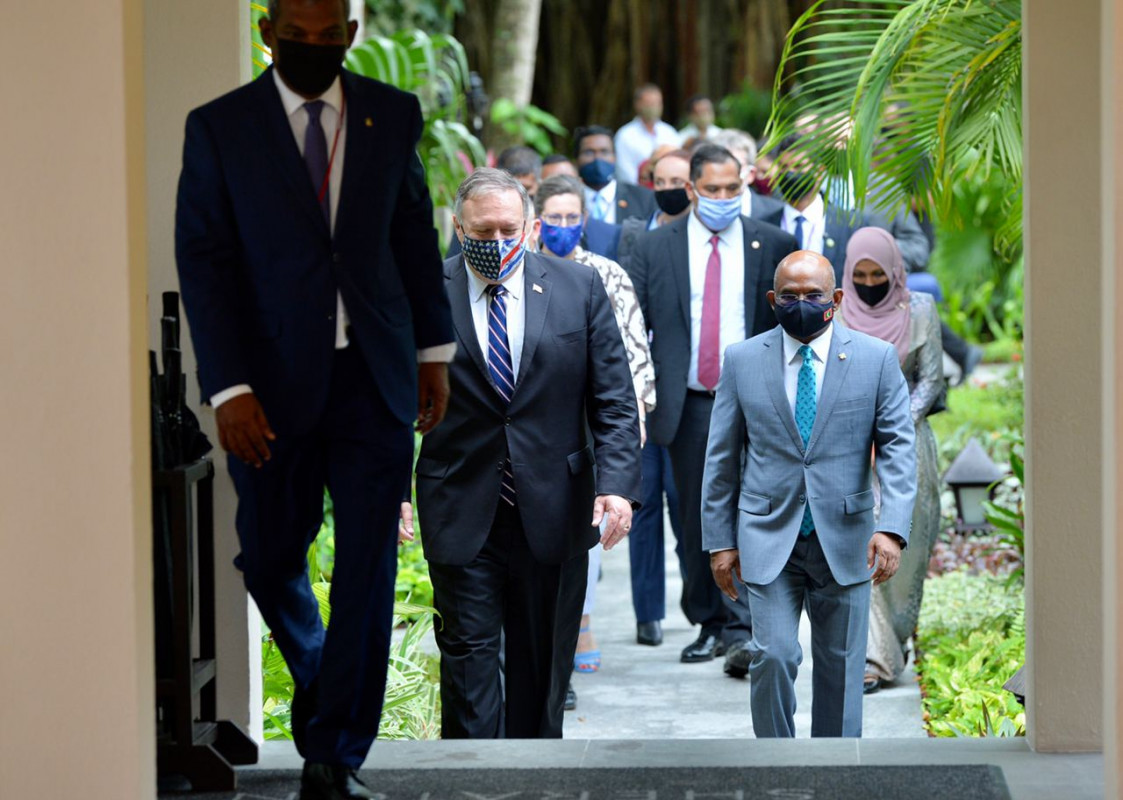Distribution of youth opinion on foreign ownership of land
The People’s Majlis, Maldives’ unilateral parliament, passed an amendment to the Maldives Law Act in 2015 that allows foreigners to own land in the Maldives


The People’s Majlis, Maldives’ unilateral parliament, passed an amendment to the Maldives Law Act in 2015 that allows foreigners to own land in the Maldives
The People’s Majlis, Maldives’ unilateral parliament, passed an amendment to the Maldives Law Act in 2015 that allows foreigners to own land in the Maldives. However, the legislature regulates this transaction thoroughly, under the criterion that the Majlis votes in favour of each sale, the buyer invests USD 100 billion, and that 70 percent of the potential purchase be reclaimed so as the island’s shoreline is visible at medium tide. The amendment was met with dismay from both opposition to politiciansthat made voted in favour of the bill, and neighbouring nations. The strong nature of the response is indicative of significant lack of support for the legislature, thus this study aims to examine how the local youth perceives it.
The primary source of data for this study was acquired by distribution of a questionnaire (attached in the appendix below), with a series of questions design to acquire answers based expressly on the participants political ideologies, outward morality (inclination to protect the environment), inward moral values (religious, cultural), political value-based, economic, and security concerns.
Age and Opinion
The study did show that there is a pattern relating age and which said factors affect the youth’s opinion of the legislature. The sheer amount of the sample group disagreeing to foreign land ownership seems to indicate that most local young people vehemently oppose the legislature.
Environment
Section 3.1 of the report shows that most participants that cited concerns for the environment appear to be between the ages of 25 to 30, while it also had the most consistent turnout over all age groups. Therefore, it can be surmised that most Maldivian youth, the total turnout amounting to 10 participates – who had expressly cited how the sale-related reclamation can be utterly detrimental to marine life and the environment. This indicates that the bulk to Maldivian youth have concerns about the environmental impact large-scale reclamation could cause.
Politics
Participants that cited political reasons such as hindrance of Maldivian sovereignty and be conducive to corruption by agreeing to the respective questions had been between 25 and 30. This may be a result of greater local political participation of that age group.
Economy
Participants that opted for this choice were entirely between 17 and 30. The lack of more senior participants citing economic reasons may be due to less financial education in older generations. Participants had that cited economic reasons to disagree with the bill, noted land scarcity and Maldives’ capability to support itself without selling land. Those that had agree with the law for economic reasons believe that it could fund development projects and supplement the Maldivian economy. Another factor that may deter participants from agreeing with the legislature could be because a sum of USD 1 billion dollars is an investment that Maldives cannot return, thus eradicating the opportunity to backtrack on sales.
National Security
Participants that had leans towards this option entirely disagreed with the legislature, stating that Maldives’ strategic location in the Indian Ocean could lead to its exploitation. The legislature has already injured ties with regional superpowers, and there are ties with states that are significantly more powerful than the Maldives who have reported military intentions in the Indian Ocean.
Culture
While participants had noted that foreign entities owning islands in the Maldives can erode culture, there primary concern could be that the citizens living near or on areas owned by said foreign entity could be subjugated. More conservative, or at the very least elder participants had opted for this choice.
Religion
Only one of the chosen participants had cited religious reasons to not support the bill, the participant – aged 32 – believes that nations that do not practice Islam should not be allowed to own and operate on Maldivian soil. Further, in the additional comments section of the questionnaire, the participant had insisted that land is a sacred gift that should be ‘treasured’.
Cluster opinions
Participants that cited one of the above stated options had also answered questions that correlate with another, therefore creating an overlap of opinion. Those that had cited cultural reasons seem to have an inclination for religion – as 2 out of three participants that had agreed to thinking that the law compromises Maldivian culture had also agreed that it erodes Islamic values. Moreover, participants that disagreed with the legislature and cited that the law is conducive to corruption had also said that the foreign investments could supplement the Maldivian economy and fund development projects.
Due to the time and logistical constraints in conducting data collection, the study has been handicapped to an extent. Such a broad scope requires further inquiry, however, the results are enough to surmise that the Majlis’ 2015 amendment has been heavily rejected by the general youth – with older age groups opting for more moral-based reasons while the younger go for applicable reasons. The results further advocate that, if land needs to be sold – there must be transparent laws and regulations to deter corruption and unnecessary damage to the environment. Government should also be mindful so as to not enter into a transaction with parties that could potentially challenge the Maldivian state’s authority.






